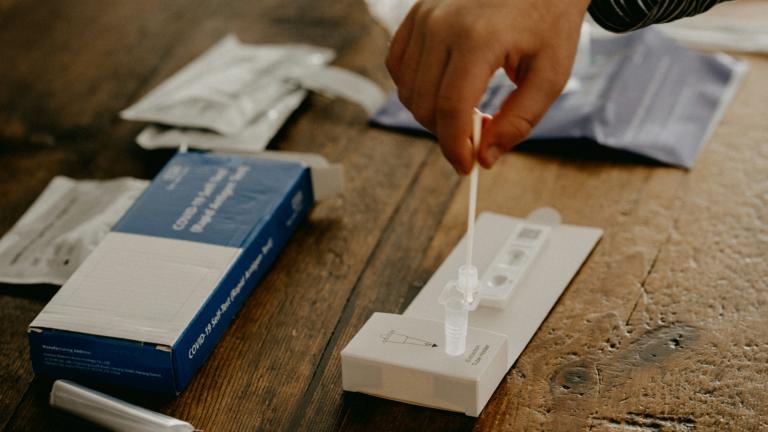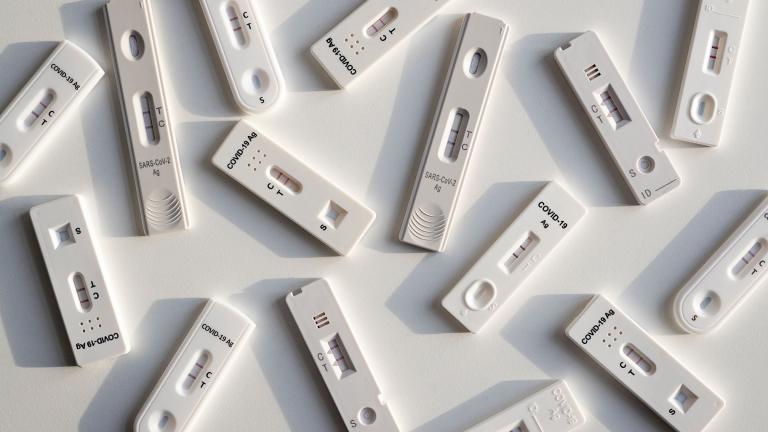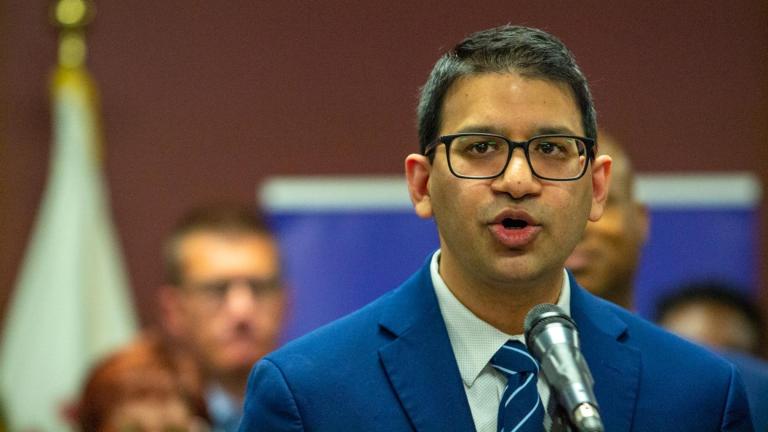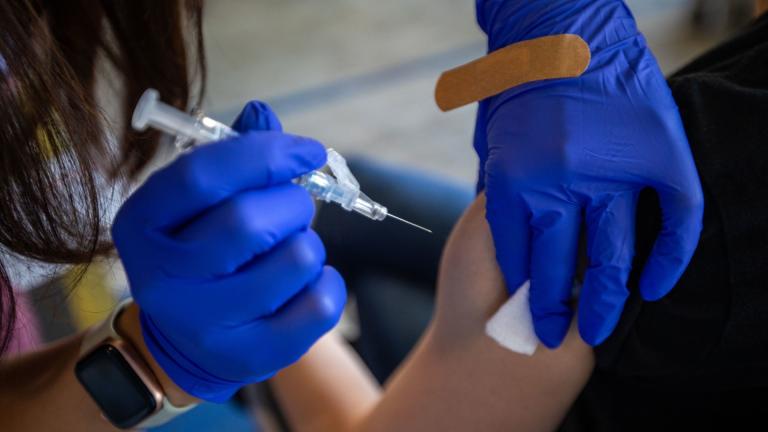At least three coronavirus vaccines are on the horizon, but some Americans appear hesitant to be first in line to take them.
As the likely distribution of COVID-19 vaccines draws near, researchers say it’s time to begin educating Americans about medical research and the vaccine, with a focus on building trust — particularly in communities that experience higher levels of distrust.
A September survey conducted by the Pew Research Center found that just 51% of U.S. adults said they would “definitely or probably” get a COVID-19 vaccine if it were available the day they took the survey.
“What makes people hesitant? They’re not sure it will work. Sometimes it’s about side effects. They want to know that it is indeed going to protect them, and that’s a message that we need to make sure we get out there,” said Kenzie Cameron, a research professor in general internal medicine and geriatrics at Northwestern Medicine. Cameron is a health services researcher with a background that includes health communication, and has studied racial and ethnic disparities in the flu vaccine.
Vaccine skepticism is highest among Black Americans — a community that sees historic mistrust in the American medical system and its record of experimenting on Black people.
“Dating back to the Tuskegee experiment that was supposed to be a six-month experiment and it lasted 40 years and with the Henrietta Lacks research study that happened in 1951. Because of these long-standing issues, African Americans, they do not trust,” said Tonya Roberson, a community psychologist and the director of community engagement, program development and academic support at Governors State University in the college of health and human services.
“They feel like the government leadership is not doing what they should do to help or to protect Americans, especially minorities, and current evidence of racial disparities in health care also cause mistrust,” she said.
Among Black adults, 32% said they would “definitely or probably” get a COVID-19 vaccine, according to the Pew Research survey in September. That figure was higher for respondents who were White (52%), Hispanic (56%) and Asian (72%).
Because mistrust in the medical system and vaccines has built over time, Cameron says rebuilding it won’t happen overnight, and it should start at the individual level — between patients and their nurses and physicians.
“There can be very significant distrust in institutions and systems, especially when we are seeing more and more this institutional and structural racism that was there all along,” she said. “The trust needs to happen between individuals.”
Some vaccine trials paused research earlier this fall because they hadn’t enrolled enough people of color. Roberson said the danger of not having diverse participants in a trial is that the vaccine may not work on everyone.
“There are environmental and genetic reasons that the vaccine drug needs to be tested on these different races so they can be accurately represented … African Americans are physically different from other nationalities. Our veins are smaller and our cancer masses are more dense,” Roberson said. Her background includes public health and biomedical and social science research. She has a particular expertise in culturally tailoring research methods to address health and racial inequities.
The Black community has been among the communities most impacted by COVID-19. As of Monday, Black residents in Chicago made up 18% of total confirmed coronavirus cases and 41% of total deaths, city data show.
A survey released Monday found that among Black and Latino Americans, safety and effectiveness were key in deciding to get vaccinated. The survey, which was conducted at the beginning of September, found that just 14% of Black respondents said they trust that a vaccine will be safe, and 18% said they trusted a vaccine would be effective. For Latino Americans, those figures were 34% and 40%, respectively.
The survey authors said the responses show the building trust on vaccine safety and effectiveness will be vital.
Roberson is working to educate community members in South Chicago and the south suburbs about medical research and vaccines, where concerns range from not wanting to be part of a medical experiment to not trusting government leadership — the same issues of mistrust surrounding the flu vaccine, Roberson said.
Rebuilding trust requires listening to patient concerns and questions, Cameron said.
“A lot of times what happens in public health and in messaging is we assume we know what you want to hear, and I’m going to tell you that,” Cameron said. “But that’s not enough. I need to find out from you what your specific concern is.”








